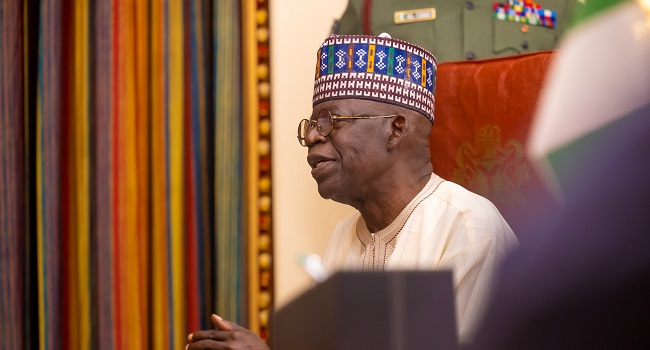President Bola Tinubu said on Tuesday that the nation needed to spend $17.7 billion yearly in order to achieve its climate target and implement its energy transition strategy.

Plans for Energy Transition and Investment indicate how nations want to develop their energy infrastructure to support economic and social progress and attain net-zero emissions. In August 2022, Nigeria published its Energy Transition Plan.
Net-zero refers to reducing greenhouse gas emissions as nearly as feasible to zero, with the residual emissions being re-absorbed from the atmosphere by various ecosystems, such as forests and oceans. By 2060, Nigeria pledged to have net zero emissions.
Also Read: MANUFACTURERS REVEAL 300% INCREASE IN DRUG PRICES
Speaking on behalf of the President at the Presidential Day Programme of the African Climate Summit held at the Kenyatta International Conference Centre, Nairobi, Kenya, the Minister of State for Environment, Dr Iziaq Salako, added that aside the annual sum was an additional $10bn, annually.
The Summit, hosted by the Government of Kenya and the African Union, was organised to create a climate goal for Africa, with a focus on green growth and climate finance.
He said, “In Nigeria, we have articulated our unchanging position to advance climate action without jeopardising economic development. We designed an ambitious Energy Transition Plan to achieve universal access to energy by 2030 and net-zero emissions by 2060 while prioritising industrialisation, job creation, and economic growth.
“Significantly, our plan helps to crystallise the scale of resources needed to deliver climate targets, and current financial flows will not suffice. Nigeria’s Energy Transition Plan requires $1.9 trillion spending up to 2060, including $410 billion above business-as-usual spending.”






